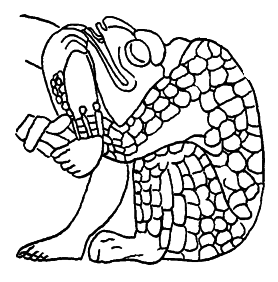Hanna Arendt's image of animal
rationale

理性的動物の虚構
Hanna Arendt's image of animal
rationale

池田光穂
● 理性(reason)の定義
"Reason is the capacity of consciously making sense of things, applying logic, and adapting or justifying practices, institutions, and beliefs based on new or existing information. It is closely associated with such characteristically human activities as philosophy, science, language, mathematics, and art, and is normally considered to be a distinguishing ability possessed by humans.[ Reason is sometimes referred to as rationality."-Reason.
"Rationality is the quality or state of being rational – that is, being based on or agreeable to reason. Rationality implies the conformity of one's beliefs with one's reasons to believe, and of one's actions with one's reasons for action. "Rationality" has different specialized meanings in philosophy,economics, sociology, psychology, evolutionary biology, game theory and political science." -Rationality.
"The hermeneutic circle (German: hermeneutischer Zirkel) describes
the process of understanding a text hermeneutically. It refers to the
idea that one's understanding of the text as a whole is established by
reference to the individual parts and one's understanding of each
individual part by reference to the whole. Neither the whole
text nor any individual part can be understood without reference to one
another, and hence, it is a circle. However, this circular character of
interpretation does not make it impossible to interpret a text; rather,
it stresses that the meaning of a text must be found within its
cultural, historical, and literary context." - Hermeneutic circle.
■理性的動物(animal rationale):
「理性的動物(animal rationale)という語は、「社会的動物」という語の場合と同じ基本的誤解にもとづいている。アリストテレスは、人間を一般的に定義づけようとした のでもなければ、人間の最高の能力を示そうとしたのでもなかった。彼にとって、人間の最高の能力とは、logos すなわち言論あるいは理性ではなく、nous すなわち観照の能力であって、その主要な特徴は、その内容が言論によっては伝えられないところにある」(アレント 1994:48)。
「前政治的力 は、家長が家族と奴隷たちを支配するためのものであり、この力が必要だと感じられたのは、人間は「政治的動物」である前にまず「社会的動物」 であるからである。しかし、このような前政治的力は、混沌とした「自然状態」とはなんの係わりもない。一七世紀の政治思想によれば、人間が「自然状態」の 暴力を免れることのできるのは、まず政府を樹立し、その政府が権力と暴力を独占し、「万人を畏敬させる」ことによって「万人の万人にたいする闘争」を廃止 する場合だけであった。それはともかく、むしろ私たちが理解しているような意味での支配と被支配の概念、統治と権力の概念のほうが、それに付随する規制さ れた秩序の概念も含めて、全体として、前政治的なものであり、公的領域ではなく私的領域に属するものであると感じられていた」(アレント 1994:53)。
■イマヌエル・カントに よる哲学の使命:
「われわれの理性には合法的になにをなしうるのか?」:1)私は何を知りうるのか?→『純粋理性批判』1781年、2)わたしは何をなす
べきか?、3)わたしには何を望むことが許されているのか? →『道徳形而上学原論』1785年、および『実践理性批判』1788年。『判断力批判』
1790年、『単なる理性の限界内における宗教』1793年。(→「イマヌエル・カント」)
■行動科学の勃興:
「経済学に続いて、今や社会科学 全部を包括すると称する「行動科学」が現われ、人間の活動力にかんする限り、人間を全体として条件反射的な行動的動物の水 準にまで引き下げようとしているのである。いいかえれば、経済学は初期段階の社会科学であって、行動規則を、まだ住民の一部分にのみ適用し、活動力の一部 分にのみ押しつけていただけであった。これにたいして「行動科学」の勃興は、明らかにこの発展の最終段階にあって、大衆社会がすでに国民のすべての階層を 飲み込み、「社会行動」がすべての生活分野の基準となったことを示している」(アレント 1994:69)。
■社会性の浮上、ふたたび:
「大衆社会では、社会的 動物としての人間が最高位を支配し、その上、種の生存が全世界的な規模で保証されることも明らかである。しかし、それと同時に、大 衆社会は、人類を滅亡の危機に陥れることもできる。このようなことは、いずれも、ヒトの一者性が幻想でもなければ、古典経済学の「共産主義の虚構」のよう な単なる科学上の仮説でもないという理由にもとづいている」(アレント 1994:70)。
■Homo loquens (人間は言語をあやつる人間である——ホモ・ロクエンス)
Yes indeed, dear Phaedrus. But far more excellent [than writing], I think, is…the art of dialectic. - Plato, Phaedrus, 276E
全部引用です→"Most people
know Plato as the world's first philosopher, but he was also the
world's first media critic. Plato wanted to find the Truth, and he said
that the only way to do it was using a method he called “dialectic.” By
this he meant reasoned discussion, a kind of debate in which real
people present arguments and other real people affirm or refute them by
means of logic. He showed how one could use dialectic to arrive at the
Truth in the dialogues for which he is justly famous. Plato, however,
not only used his dialogues to demonstrate how to get to the Truth, but
also to explain what the Truth was. And one of the Truths he pointed
out was that some of his competitors were selling philosophical snake
oil. These were the rhetoricians, professional speechwriters in the
ancient Hellenic world. They were charlatans, Plato complained, and not
really interested in the Truth at all. Rather, their only aim was to
teach politicians to flatter their constituents, to feed what Plato
pejoratively called the “Great Beast” of public opinion. Instead of
showing statesmen the light, the rhetoricians transformed them into
pastry chefs who served up sweets according to vulgar tastes without
thought as to whether they were healthy or not (Gorgias, 465A). For
Plato, you either discuss or deceive. Philosophers discussed,
rhetoricians and those they trained deceived. There was no middle
ground. It's little wonder that Plato banished rhetoric from the ideal
city he described in The Republic. There was just no place for it./
Plato thought people were meant to talk to one another, not at one
another. He was more right than he knew. As we’ll see in this chapter,
nature fashioned Homo sapiens into a creature both fantastically
skilled in dialogic communication and driven to engage in it. We do not
talk because we want to. We talk because we have to. In this sense, we
are all natural-born Platonists – eager, tireless, unstoppable talkers.
Talking is in our natures, so it is with talking that we should begin
our history of media and their consequences." http://bit.ly/3rs2fx1.
リンク
文献